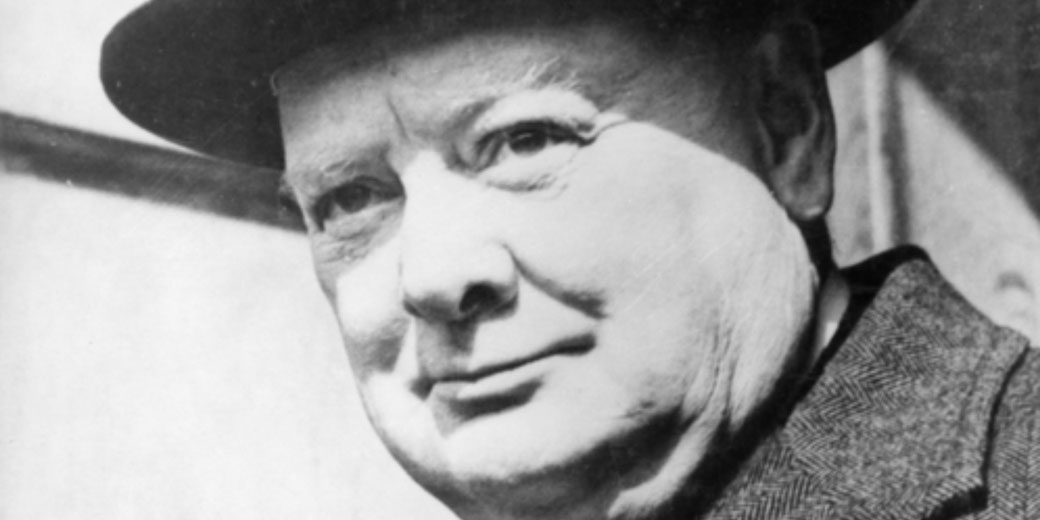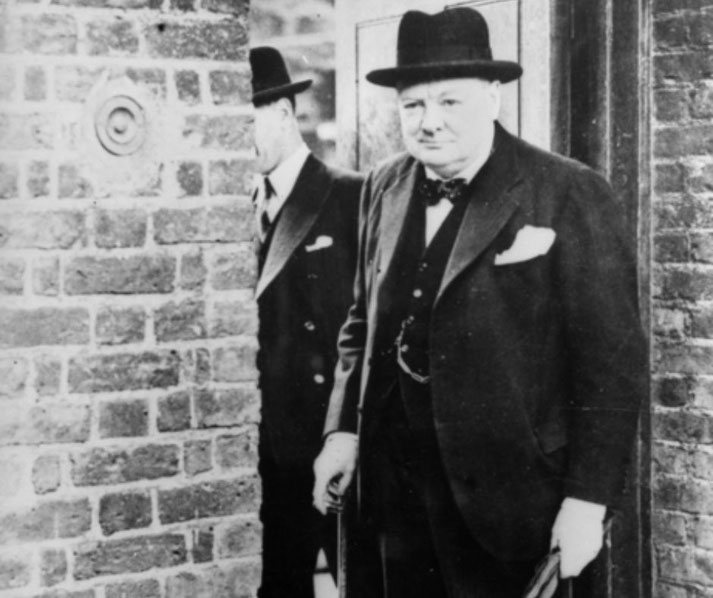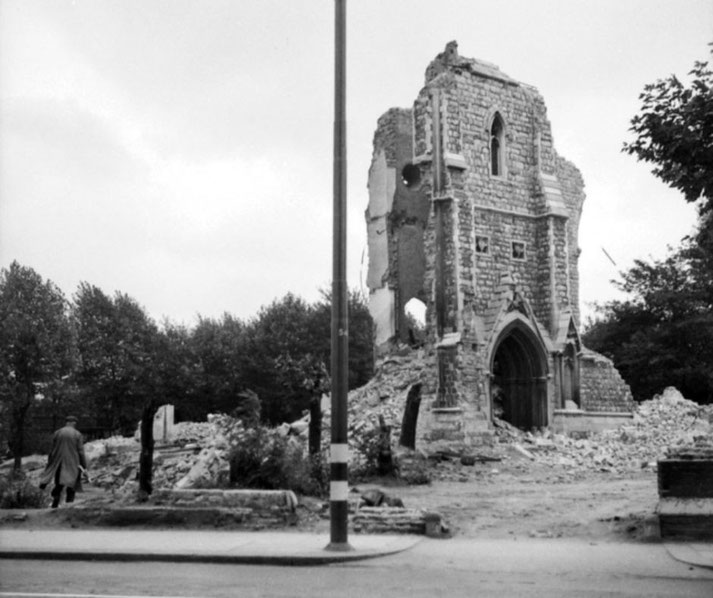How Churchill became Prime Minister: The dramatic and sudden rise of a legendary leader

In May 1940, Britain stood on the brink of disaster. As Nazi forces rampaged across Western Europe, pressure mounted at home for a new leader to guide the nation through its darkest hour.
Although Winston Churchill had been a controversial and sidelined figure for much of the previous decade, he unexpectedly rose to the position as Prime Minister at the very moment Britain needed a leader prepared to resist Hitler without compromise.
Churchill's background and early political career
Winston Leonard Spencer Churchill was born on 30 November 1874 at Blenheim Palace in Oxfordshire, where he entered the world as the grandson of the 7th Duke of Marlborough.
His father was Lord Randolph Churchill who had held the position of Chancellor of the Exchequer, and his American mother, Jennie Jerome, belonged to a wealthy New York banking family.
Churchill struggled during his schooling and gained admission to the Royal Military Academy at Sandhurst only after three attempts.
After graduating 20th out of 130 in his class, Churchill joined the 4th Queen’s Own Hussars and sought out opportunities for combat and journalism across the empire.
He gained national attention by reporting on the Cuban War of Independence, and he also fought on the North-West Frontier of India, charged at Omdurman in the Sudan, and escaped from a Boer prison camp in South Africa.
His published accounts of these adventures transformed him into a household name and helped him secure a seat in Parliament as a Conservative MP for Oldham in 1900.
After only four years in Parliament, Churchill left the Conservative Party and joined the Liberal Party because he opposed Conservative tariff policies and during the next decade he rose quickly through the ranks of the Liberal government.
He served successively as President of the Board of Trade in 1908, Home Secretary in 1910, and First Lord of the Admiralty in 1911, where he pushed for naval reform and urged preparedness in the face of growing international threats.
As President of the Board of Trade, he introduced labour exchanges and supported the Trade Boards Act, which created minimum wages in certain industries.
However, his political career suffered a serious setback after his failed direction of the Gallipoli campaign during the First World War, which resulted in heavy losses for Allied forces attempting to seize control of the Dardanelles from the Ottoman Empire.
The campaign caused around 250,000 Allied casualties, including approximately 46,000 deaths, though most were wounded or missing rather than killed, and it severely damaged Churchill's reputation.
Forced to resign in 1915, Churchill temporarily left politics and joined a battalion on the Western Front.
He later returned to government in 1917 as Minister of Munitions under David Lloyd George, eventually becoming Secretary of State for War and then Secretary of State for the Colonies.
In 1924, he rejoined the Conservative Party and became Chancellor of the Exchequer under Stanley Baldwin.
His decision in 1925 to return Britain to the gold standard at the pre-war parity of $4.86 per pound triggered severe deflation and unemployment, drawing strong criticism from economists such as John Maynard Keynes, who warned of the consequences of such a policy.
Over time, Churchill's combative style, history of party-switching, and mixed record in government eroded the trust of many colleagues.
The Interwar Period and the threat of Hitler
Throughout the 1930s, Churchill became increasingly isolated from the political mainstream.
While he continued to serve as a Member of Parliament, he no longer held ministerial office, and many regarded him as a relic of the past whose opinions seemed out of step with public opinion and party direction.
His vocal support for Edward VIII during the 1936 abdication crisis, as one of the few prominent members of the "King's Friends," further damaged his political standing and distanced him from much of the political establishment.
Nevertheless, he used his platform to speak and write extensively on foreign affairs, especially the rising threat posed by Adolf Hitler’s Nazi regime.
Churchill delivered repeated warnings in Parliament and in newspapers about the dangers of German rearmament, the weakness of the Versailles Treaty, and the possibility of another continental war.
He criticised the League of Nations for its ineffectiveness and condemned the failure of Western powers to oppose Hitler’s moves in the Rhineland, Austria, and Czechoslovakia.
Although his predictions later proved accurate, his calls for stronger air defences and military preparedness were dismissed as alarmist by many, including prominent figures in his own party.
Public opinion during the interwar years generally favoured peace and disarmament, especially in the aftermath of the First World War’s devastation.
Churchill's focus on defence spending and national security placed him at odds with the dominant policy of appeasement pursued by Prime Ministers Stanley Baldwin and Neville Chamberlain.
Most of the political establishment, as well as many voters, supported diplomatic efforts to avoid conflict.
As a result, Churchill remained on the political margins, frequently mocked by critics and kept out of Cabinet posts.
Despite these setbacks, Churchill continued to monitor developments on the continent closely and maintained contact with military experts and foreign correspondents who confirmed the scale of Germany’s rearmament.
His warnings became more urgent after the Anschluss in 1938 and the breakup of Czechoslovakia following the Munich Agreement.
These events confirmed his view that Hitler could not be appeased, yet Chamberlain’s popularity, boosted by his claim to have secured “peace for our time,” left Churchill out of step with most of his contemporaries.

Churchill's position when WWII began
When Germany invaded Poland in September 1939 and war became unavoidable, Chamberlain reluctantly invited Churchill back into government as First Lord of the Admiralty.
The decision, though controversial, was motivated by Churchill’s experience with naval strategy and his previous service in the same post at the start of the First World War.
The public announcement was brief: the informal signal sent to the fleet read, 'Winston is back'.
Churchill immediately took a central role in directing naval operations and coordinating with France’s naval forces.
He revived the Ministerial Defence Committee and pushed for more aggressive planning, including support for the Norwegian Campaign, which ultimately failed.
While British forces succeeded in briefly recapturing Narvik, they later withdrew as the wider German invasion of France made the operation impossible to sustain.
He worked tirelessly to strengthen British naval superiority and insisted on aggressive strategies to disrupt German shipping and enforce blockades.
While some Cabinet members still viewed him as rash, others began to acknowledge the energetic clarity that informed his strategic thinking during wartime.
His speeches in Parliament and radio broadcasts to the public began to shift his reputation.
They had once sounded reckless, but his warnings now seemed accurate, and his defiant tone captured the mood of a nation entering a difficult and uncertain struggle.
However, Churchill did not command widespread support across the Conservative Party.
His record in previous Cabinets, especially during the interwar period, continued to spark concern, and many regarded him as too unpredictable for national leadership.
How likely was Churchill to become Prime Minister?
By early 1940, Churchill remained one of the most prominent ministers in government, but his path to the premiership was far from assured.
Most Conservative MPs preferred the steady and respected Lord Halifax, who had served as Foreign Secretary since 1938 and enjoyed the confidence of King George VI.
Halifax had played a key role in negotiating the Munich Agreement and retained considerable support among Chamberlain’s loyalists.
Churchill lacked a strong faction within the party and had alienated many colleagues over decades of heated debates and changing loyalties.
His reputation for dramatic speeches and risky decisions, combined with his tendency to act independently of party lines, created doubts about his reliability in a crisis.
Even some Labour and Liberal figures, who respected his opposition to appeasement, worried about his impulsiveness and authoritarian streak.
Nevertheless, Churchill had one major advantage. His warnings about Hitler had proved accurate, and his early efforts at the Admiralty had begun to restore public and political confidence.
He spoke with urgency, understood the nature of the German threat, and made no secret of his desire to fight to the end rather than seek negotiation.
In contrast, Halifax still considered the possibility of a diplomatic solution and had entertained informal discussions about peace via intermediaries.
As the war intensified, the choice of national leadership became more urgent, and Churchill’s chances improved only because of the collapse of confidence in Chamberlain’s leadership.
The fall of Chamberlain
The immediate crisis emerged in April 1940, when Germany invaded Denmark and Norway in a rapid campaign that exposed weaknesses in British military planning.
The failed Allied response, particularly the inability to hold Narvik, led to widespread criticism of Chamberlain’s handling of the war.
On 7 May, the House of Commons began a two-day debate on the Norway Campaign, which ended in a vote that, while technically a victory for Chamberlain by 281 to 200, revealed deep fractures within his own party.
Over 40 Conservative MPs either voted against Chamberlain or abstained, indicating that he no longer held the confidence of the House.
Chamberlain recognised that he could not continue to govern effectively without broader support, especially with war escalating on multiple fronts.
He consulted with senior figures and informed King George VI that he would resign as soon as a suitable successor could be found.
During the debate, MP Leo Amery quoted Oliver Cromwell, saying, "You have sat too long here for any good you have been doing. Depart, I say..."
Although Halifax remained the initial favourite, he declined to pursue the leadership, citing his position in the House of Lords, which made it difficult to lead the government in Commons debates.
He privately admitted that he would find it physically impossible to handle Commons proceedings.
His true motive, however, showed his reluctance to lead a nation committed to fighting Hitler without seeking peace.
With no alternative acceptable to both major parties and the King, Churchill emerged as the only viable option.
Churchill's appointment as Prime Minister
On 10 May 1940, King George VI summoned Churchill to Buckingham Palace and formally invited him to form a government.
That same morning, German forces launched a massive invasion of Belgium, the Netherlands, and Luxembourg, which indicated the beginning of the Battle of France.
The urgency of the military crisis helped to smooth the political transition.
Churchill quickly formed a national coalition that included Conservatives, Labour, and Liberals, which brought key opposition figures such as Clement Attlee and Arthur Greenwood into senior positions.
This move strengthened the government’s authority and demonstrated unity to Britain’s enemies and allies alike.
Churchill also revived the office of Minister of Defence, which had briefly existed before, and he assumed it himself, which gave him direct control over both military and political decision-making during wartime.
He reduced the size of the War Cabinet to five members to ensure speed and flexibility in decisions.
The members included Churchill, Halifax, Attlee, Greenwood, and Liberal National leader Sir Archibald Sinclair.
He held near-constant meetings with military leaders, civil servants, and Cabinet ministers to coordinate planning and response.

Churchill's cataclysmic first few days as leader
Churchill’s first days in office coincided with one of the most dangerous phases of the Second World War.
Germany’s blitzkrieg across Western Europe threatened to collapse Allied resistance entirely.
French armies fell back in disarray, the Low Countries faced occupation, and the British Expeditionary Force found itself at risk of being surrounded.
Inside the War Cabinet, some members, including Halifax, raised the possibility of exploring peace terms through Mussolini, who had not yet entered the war.
Churchill, however, rejected any negotiation with Hitler, arguing that it would destroy Britain’s credibility and morale.
He insisted that surrender, even in part, would lead to complete domination and could not be reversed.
On 13 May 1940, Churchill delivered his first speech as Prime Minister in the House of Commons.
He promised only “blood, toil, tears and sweat,” which reflected the seriousness of the situation and set the tone for his leadership.
The speech avoided empty assurances and inflated promises and focused attention on the national task ahead.
As Dunkirk approached and the French campaign deteriorated, Churchill worked day and night to prepare defences, rally the public, and manage evacuation plans.
He supported the launch of Operation Dynamo on 26 May, which successfully evacuated over 338,000 Allied troops.
His firm commitment to fighting on, even if Britain stood alone, helped to anchor national confidence at a time of near-total collapse on the continent.
He reinforced this position with moving speeches such as his "We shall fight on the beaches" speech on 4 June.
What do you need help with?
Download ready-to-use digital learning resources
Copyright © History Skills 2014-2025.
Contact via email
With the exception of links to external sites, some historical sources and extracts from specific publications, all content on this website is copyrighted by History Skills. This content may not be copied, republished or redistributed without written permission from the website creator. Please use the Contact page to obtain relevant permission.





